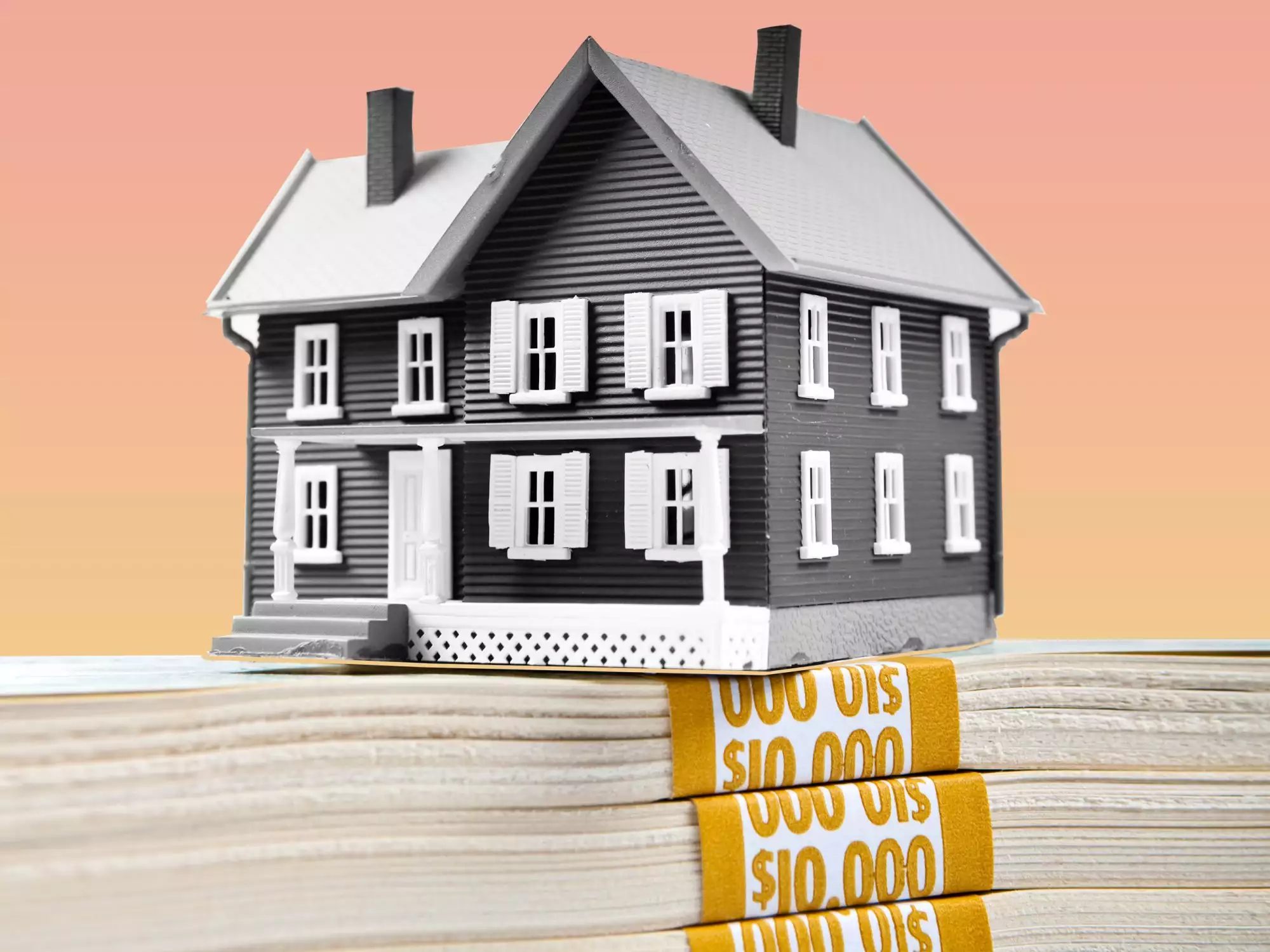Cash Out Refinance
- Home
- Cash Out Refinance
Cash-out Refinance: Guide for Home's Equity for Renovations, and More
If you’re a homeowner, like most people, you want to do everything you can to make your home as comfortable and modern as you can. On the other hand, it is not always easy to come up with the money that is necessary for repairs and improvements. The solution may be cash out refinancing. It can support you in paying for a variety of expenses, including home renovations, consolidation loans, or even the repayment of college debts. This article will tell you step-by-step through the process of a cash-out refinance in Raleigh so that you can decide whether or not it is the best option for you.
Definition of Cash Out Refinance
Cash-out refinancing is a specific mortgage arrangement that enables homeowners to withdraw cash from the equity they have built up in their homes. This may be used toward the purchase of new equipment for the house, the consolidation of existing debt, or even the repayment of existing student loans. You will get the money you obtain via a cash-out refinancing in one payment, and you will be required to make regular payments on the loan.
What's the Process of a Cash-Out Refinance?
The process of replacing your current mortgage with a new one that is for a higher amount than what you are now obligated to pay is referred to as cash-out refinancing. When that is complete, you will get a payout equal to the difference between the two loans.
For instance, suppose you have a $200,000 mortgage loan and wish to make $30,000 worth of house improvements. You might apply for a $230,000 cash-out refinancing. This would provide you with the required $30,000 in cash for house upgrades and a new $230,000 mortgage loan. This loan would need monthly payments, exactly like your original mortgage. Cash-out refinancing is a mortgage arrangement that enables you to withdraw cash from your home’s equity. This can be utilized for home upgrades, debt consolidation, or even school loan repayment. The money received from a cash-out refinancing is distributed in a lump amount, and monthly payments are required.


Consideration of Cash-out refinance
There are a few things you should think about before deciding to perform a cash-out refinancing.
- To qualify, you must first have equity in your house.
- To be eligible for the best rates, you must also have a stable income and strong credit.
- Third, your house's value and credit score will determine how much cash you may collect through a cash-out refinancing.
- The closing fees associated with cash-out refinancing must also be paid. Make careful to account for them in your budget because they may add up.
What Advantages Make Cash-Out Refinances Offer?
Cash-out refinancing has the following significant advantages:
- You have the ability to use the equity that you have built up in your house to pay for a variety of expenses, including home upgrades and debt consolidation.
- You may be able to pay off high-interest debt, such as credit cards or school loans, by refinancing your mortgage into one that gives you access to more cash.
- It is possible that the interest rate you pay on your new loan will be lower than the rate you are now paying on your mortgage.
What are the risks of cash-out refinancing?
Refinancing with cash-out comes with some risks, just like any other kind of loan, including the following:
- If you are not alert, you can find that you have to pay a higher total amount for the interest throughout the loan term.
- Your house may be subject to foreclosure if you are late with any of your payments on the mortgage.
- If you don’t have a sufficient amount of money saved up for a down payment, you can be required to pay for private mortgage insurance, commonly known as PMI.


With a cash-out refinance, how much money can you get?
There are several factors that will determine how much cash you may obtain from cash-out refinancing, including the following:
Your credit score:
If you have a higher credit score, you will often have a greater chance of obtaining a better interest rate, which might ensure that you can receive more money.
The value of your home:
If you have a considerable amount of equity in your house, you will have a greater chance of being approved for a sizeable amount of financing.
The amount of debt you have:
If you already have a lot of debt, your chances of getting cash through a cash-out refinancing will be lower.
History of your income and employment:
Lenders will want to verify that you have sufficient income to cover the payments on the new loan.
The procedure for closing a cash-out refinancing
The steps in acquiring a cash-out refinance are similar to the steps in getting a regular mortgage.
You will be required to apply, and most of the time, you will also be required to present some evidence, such as pay stubs and tax returns.
After that, your lender will arrange an assessment of your house to discover how much it is now worth.
After your application for the loan has been processed and accepted, the closing expenses will need to be paid. Fees for appraisals, title insurance, and loan origination are all examples of the kind of costs that fall under this category.
Following the conclusion of the closing procedure, you will next be required to make monthly payments for your new loan.
Cash-out refinancing alternatives in Raleigh
There are some additional choices to take into account if you’re unsure whether a cash-out refinancing is the best choice for you:
Personal loans:
Home upgrades and consolidation of existing debt are two common uses for personal loans. The duration of the payback period and the interest rate are both often set in stone.
HELOC: Home Equity Line of Credit
Home equity lines of credit (HELOC) are revolving lines of credit that may be utilized for a wide range of reasons, including debt reduction and home improvement.
The credit card:
Credit cards can be used to fund minor home improvements. However, they typically have high-interest rates and might be challenging to repay.
Second mortgage:
A second mortgage is a loan secured by the value of the borrower’s home. It may be utilized for home improvements, but its interest rate is often more significant than that of a cash-out refinancing.


Home Equity Loan vs. Cash-Out Refinance
There are a few factors to consider when deciding between a cash-out refinancing and a home equity loan:
The rate of interest:
The interest rate on a cash-out refinancing is often lower than that on a home equity loan. This is because the loan is secured by your property, and the lender may provide a cheaper interest rate due to the reduced risk involved.
The charges:
Typically, both cash-out refinancing and home equity loans have closing fees. These can include appraisal costs, title insurance, and origination expenses, among others.
The term of repayment
The payback period of cash-out refinancing is often shorter than that of a home equity loan. This will result in more significant monthly payments, but the loan will be paid off sooner.
Cash-out might be an excellent option to obtain funds for home repair, debt consolidation, or student loan payments. Before applying, ensure you understand how it works. Contact us today to find out more about cash-out refinancing in Raleigh. We would guide you through the steps of the procedure.
Your dream home is waiting. Start your approval today.
“Owning a home is a source of joy and pride, but financing it is often hectic. We are here to change the status quo.”
Let's Connect
Financing your home is easy. Refinancing it is even easier. You just need to find a transparent lender or a reliable online mortgage advisor to guide you throughout the mortgage financing process. GoNoCost Mortgage has those people.







